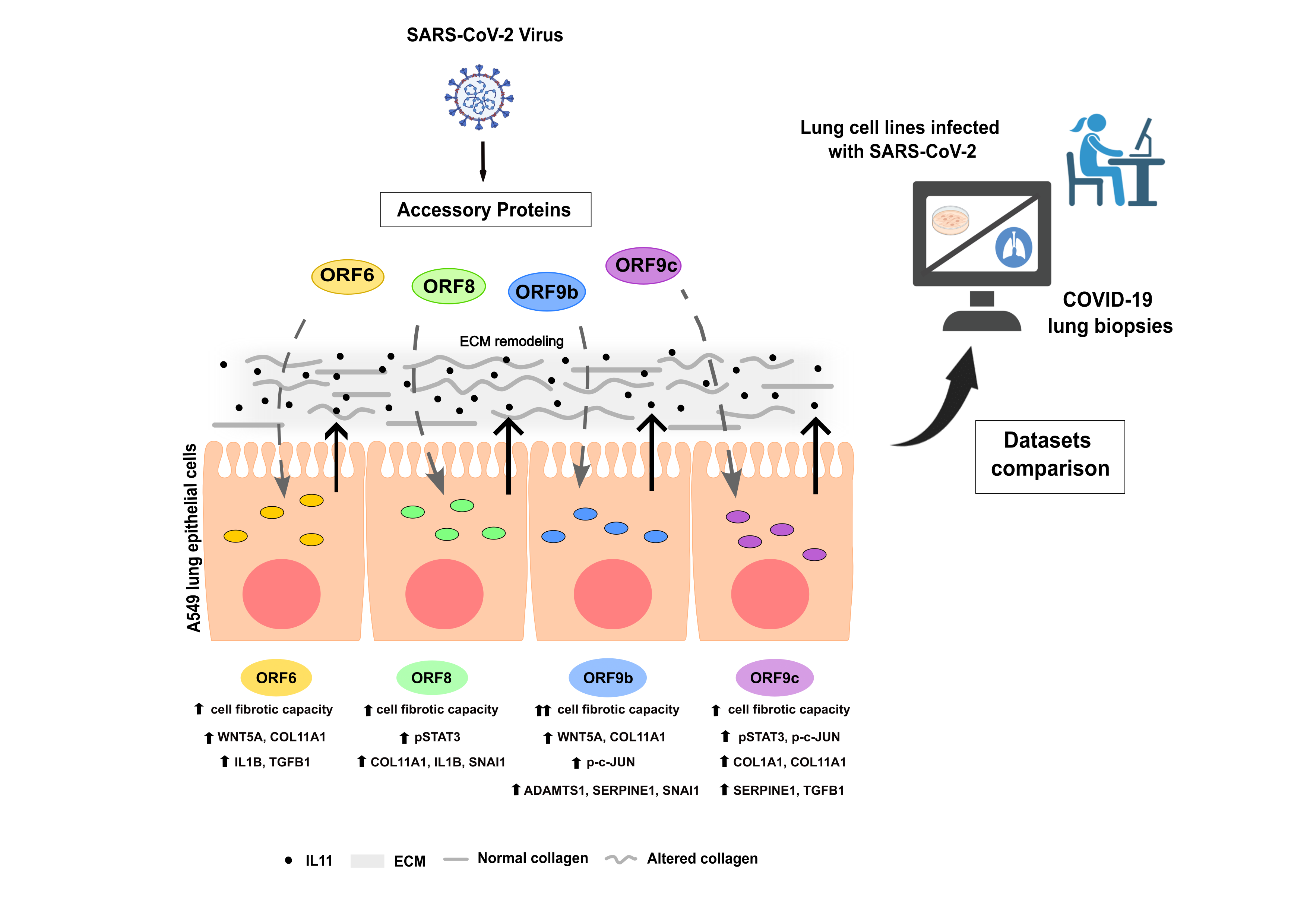
A study published in the journal Frontiers in Immunology by the group led by Dr. María Montoya at the Margarita Salas Center for Biological Research (CSIC) shows that a number of accessory proteins of the SARS-CoV-2 virus are involved in the inflammatory and profibrotic responses of lung epithelial cells.
The SARS-CoV-2 virus, which caused the COVID-19 pandemic, is a virus whose nucleic acid is an RNA molecule that codes for 31 proteins. Eleven of these proteins are called "accessory proteins", i.e., they are not necessary for virus replication. The functions of all these proteins during infection are not yet fully understood, but they must play an important role since the virus maintains them in its genome. Some of these proteins have been mutated in the new SARS-CoV-2 variants.
In this study, López-Ayllón et al. transduced A549 human lung epithelial cells individually with SARS-CoV-2 accessory proteins ORF6, ORF8, ORF9b or ORF9c. Transcriptomic analysis of these cells revealed a significant increase in the expression of WNT5A and IL11 (a member of the IL6 cytokine family) genes, as well as downregulation of genes related to IL11 signaling. A bioinformatics analysis showed that both WNT5A and IL11 were involved in idiopathic pulmonary fibrosis, so the researchers performed functional assays to study the involvement of these genes, and the corresponding signaling pathways, in profibrotic cellular responses. The results obtained point to a direct relationship between the deregulation of the IL11 signaling pathway and the profibrotic behavior observed in transduced cells.
The comparative in silico study of the data obtained in these experiments with analysis of expression changes in human lung cell lines infected with the complete SARS-CoV-2 virus, and lung biopsies from patients dead by COVID-19, evidenced an altered expression of profibrotic genes that correlated with that obtained in the work of López-Ayllón et al.
Taken together, the results obtained in this work show the involvement of the accessory proteins ORF6, ORF8, ORF9b, and ORF9c in the profibrotic responses of lung epithelial cells. Therefore, these SARS-CoV-2 proteins could become new targets for the treatment of COVID-19 disease.
The work is the result of a collaboration between CIB Margarita Salas and the University of Cordoba, the Maimonides Institute of Biomedical Research of Cordoba (IMIBIC), and the National Center of Biotechnology (CNB-CSIC).
Reference: SARS-CoV-2 accessory proteins involvement in inflammatory and profibrotic processes through IL11 signaling. Blanca D. López-Ayllón, Ana de Lucas-Rius, Laura Mendoza-García, Tránsito García-García, Raúl Fernández-Rodríguez, José M. Suárez-Cárdenas, Fátima M. Santos, Fernando Corrales, Natalia Redondo, Federica Pedrucci, Sara Zaldivar-López, Ángeles J. Marín, Juan J. Garrido and María Montoya (2023) Front. Immunol. Sec. Viral Immunology. Volume 14 - 2023. DOI: 10.3389/fimmu.2023.1220306

